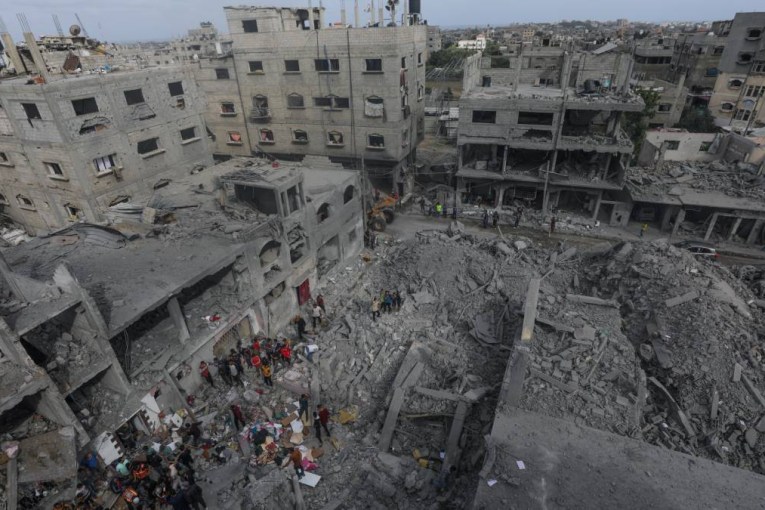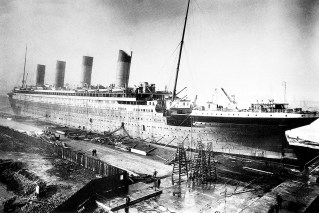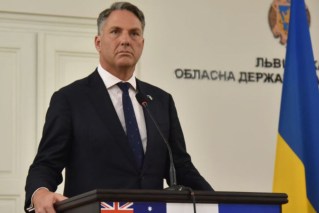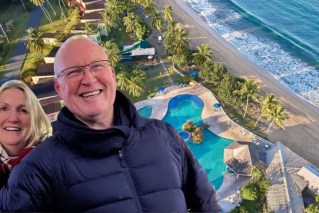Donald Trump’s plan for Middle East peace based on shared fear of Iran

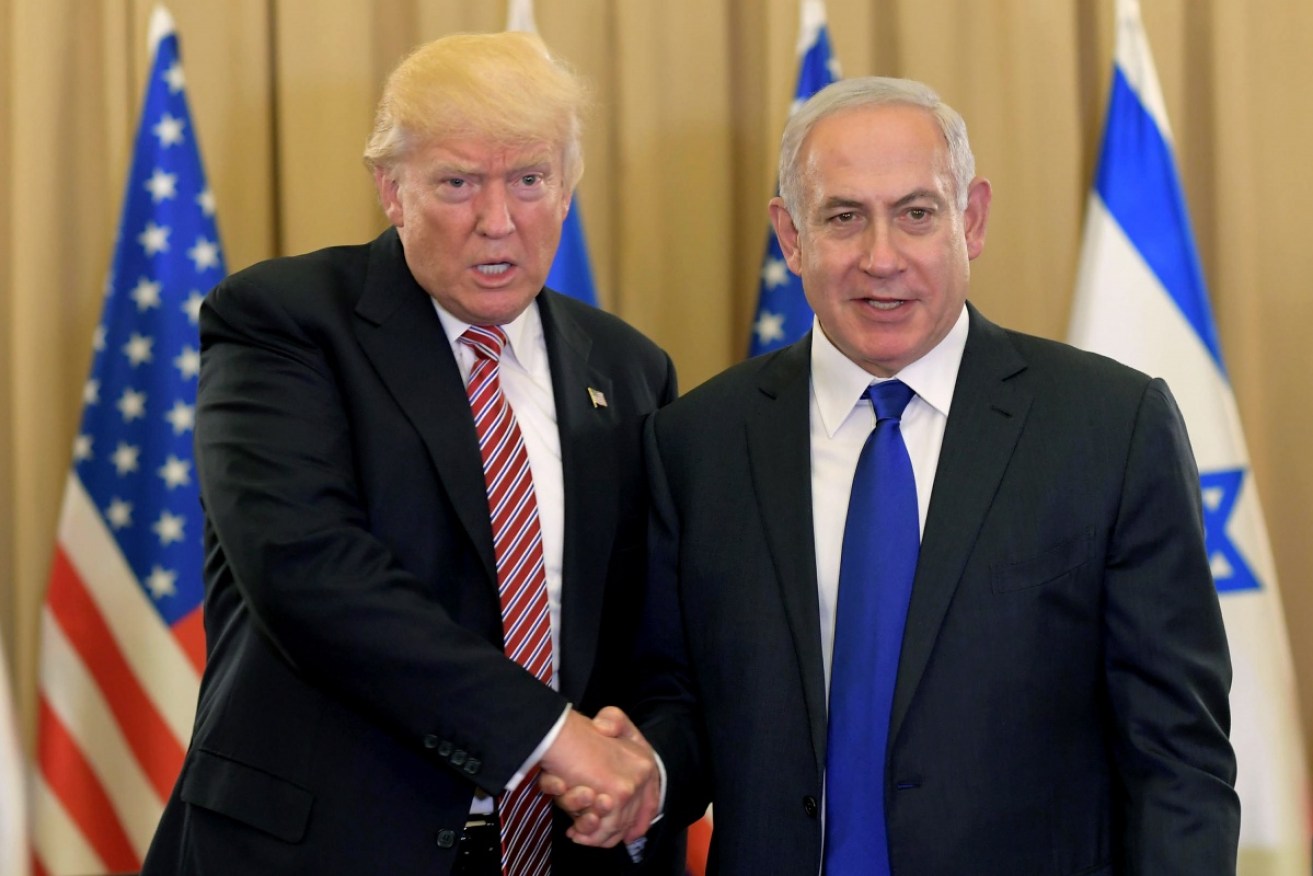
Presiodent Trump treats Benjamin Netanyahu to one of his trademark handshakes. Photo: Getty
US President Donald Trump appears to have found common ground between Israel and the Arab nations – their mutual fear of the influence of Iran.
President Trump flew into Israel on Monday night (AEST) on the second stop of his first presidential trip after earlier visiting Saudi Arabia.
His message to Israel was in many respects similar to the one he offered Sunni-Muslim majority leaders in Saudi Arabia on Sunday.
Speaking in Jerusalem on Tuesday morning (AEST) after discussions with Israeli leaders on the first day of his two-day visit, Mr Trump pledged he would never let Tehran acquire nuclear arms.
“What’s happened with Iran has brought many of the parts of the Middle East toward Israel,” he said at a meeting with President Reuven Rivlin.
Speaking with Prime Minister Benjamin Netanyahu, President Trump alluded to a growing Iranian influence in conflicts in Syria, Yemen and Iraq, where it either backs Shi’ite fighters or has sent its own forces.
Mr Trump said the threat of Iran offered opportunities for cooperation across the Middle East.
“That includes advancing prosperity, defeating the evils of terrorism and facing the threat of an Iranian regime that is threatening the region and causing so much violence and suffering,” he said.
The US President also welcomed what he called Mr Netanyahu’s commitment to pursuing peace, and renewed his pledge to achieve a deal between Israel and the Palestinians.
Mr Netanyahu did not mention the word “Palestinians” in his remarks, but spoke of advancing “peace in our region” with Arab partners helping to deliver it.
Mr Trump vowed to do whatever necessary to broker peace between Israel and the Palestinians, dubbing a peace accord “the ultimate deal”.
Israel shares the antipathy many Arab states have towards Iran, seeing the Islamic Republic as a threat to its existence.
“I want you to know how much we appreciate the change in American policy on Iran which you enunciated so clearly,” Mr Netanyahu, who had an acrimonious relationship with former US president Barack Obama, told Mr Trump at his official residence.
Mr Trump in turn urged Iran to cease “its deadly funding, training and equipping of terrorists and militias”.

Donald Trump became the first sitting US President to visit Jerusalem’s Western Wall. Photo: Getty
The US President on Sunday told the leaders of 55 Muslim-majority countries at an Arab-Islamic-American summit in Riyadh that Islamic leaders must do their fair share to “drive out” terrorists from their own countries in a speech that put the burden on the Arab region to combat extremists.
Introducing President Trump, Saudi King Salman bin Abdulaziz Al Saud described their mutual foe Iran as the source of terrorism they must confront together.
“Our responsibility before God and our people and the whole world is to stand united to fight the forces of evil and extremism wherever they are … The Iranian regime represents the tip of the spear of global terrorism,” he said.
Iran’s newly re-elected President, Hassan Rouhani said regional stability could not be achieved without Iranian help, and accused Washington of supporting terrorism with its backing for rebels in Syria.
He said the summit in Saudi Arabia “had no political value, and will bear no results”.
Mr Rouhani said the US government lacked knowledge of the Middle East.
“Americans resorted to many different methods against Iran but failed in all … we are waiting for the new government to find stability and continuity in its policies,” he said.
Mr Trump signed arms deals worth almost $US110 billion during his two-day visit to Saudi Arabia.
“[Mr Trump] tried to encourage the countries of the region to purchase more arms by spreading Iranophobia,” Iran’s Foreign Ministry spokesman Bahram Qassemi said.
– With agencies
